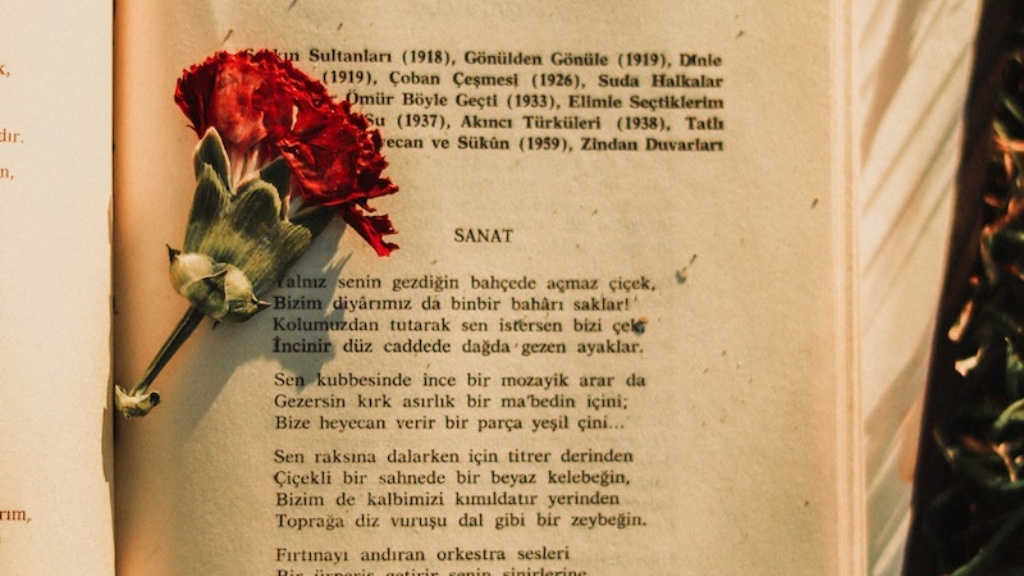Introduction: Langston Hughes and His Writing
Langston Hughes was one of the most prominent figures of the Harlem Renaissance who is best known for belonging to the artistic movement. Langston Hughes was an accomplished poet, playwright, essayist, and novelist. His writing served a way of challenging and transforming the way African Americans were seen by society. Langston Hughes wrote a whole range of works throughout his life, but poetry was his primary forte. He dedicated a great deal of his life to writing in all its forms, including various collections of short stories and novels. But why did Langston Hughes write poetry?
The Promise of Freedom
One of Langston Hughes’ predominant works is his dream of freedom for his people. He often wrote about the difficulties facing African Americans who, excluding a few seminal years of Reconstruction, were largely without legal, economic or social protection from the majority white culture in the US. To Hughes, the promise of America was to provide a safe and prosperous home to everyone who called her a home, regardless of background and race. Consequently, a significant part of his writings was dedicated to expressing the pains of contemporary racism and the never-ending promise of a better tomorrow for African Americans.
In his poems and prose, Hughes provided a sense of hope for people who had been robbed of their dignity, independence, and sense of self-worth by the white society. His writing was a way of making the African American population believe in themselves and the American dream.
In his work entitled “The Negro Speaks of Rivers,” Langston Hughes conveys the idea that the history of African Americans is intertwined with nature. At the same time, the poem gives the hope that, even in the difficult times, the spirit of African Americans would continue. By writing these words, Langston Hughes was offering a source of peace and courage.
Expressing the African American Experience
In many of his writings, Langston Hughes gave a voice to the African American population. Through his poems, he focused on portraying aspects of racial injustice, the realities of discrimination, and other negative aspects faced by the African American population that had long been neglected or overlooked for a long time. He exposed painful realities through his writings but was also able to capture moments of joy, happiness, and beauty. In his literary works, Hughes depicted the essence of the struggle and resilience of his people.
In his poem “I Too Sing America,” Langston Hughes addresses the American dream. Through this work, he aimed to portray the idea of an equal American life where all races share a common destiny. He declared that truths which even the most oppressed African American people held true, including pride and hope, were accessible to all.
Poetic License
Poetry provided Langston Hughes with an avenue to express ideas without being censored. His works could be interpreted in different ways depending on the readers’ individual point of view. Moreover, a great deal of his work was written in a vernacular style. His writing was built on the genuine emotions of African American culture shared through folk tales, popular culture, and real-life conversations.
At the same time, Langston Hughes experimented with a variety of poetic structures, such as traditional sonnets, limericks, and free verse. His writing allowed him to capture the essence of the African American culture in an art form that was able to transcend social, economic, cultural and racial boundaries. His written works were an art form that is appreciated and admired today.
Conclusion
In conclusion, Langston Hughes wrote poetry as a way to express his dreams of freedom for African Americans, as well as to express their harsh realities and struggles. His works focused on portraying the complexities of the lives of African Americans. His use of poetic license allowed him to capture moments of joy and beauty, as well as truths that all African Americans held true. Langston Hughes’ famed poetry is still a source of inspiration and admiration in our contemporary society.
Religion in Langston Hughes’ Poetry
Religion played a large role in the works of Langston Hughes. As a deeply religious person, he often drew upon his religion as a source of hope and faith in his writing. His works often draw upon elements of Christianity, although he was quite ecumenical in his approach to both and wrote poems that incorporated faith from various religious traditions.
In his poem “Let America Be America Again,” Langston Hughes wrote of his faith, declaring that “God’s time is always near.” Other poems such as “Dream Variations” and “Dream Keeper” express his faith in the power of dreaming, which is a major recurring theme in his poems. His use of religious imagery, such as his referencing of the Bible and Christianity, serves to constantly remind the reader of the importance of faith throughout his poetry.
Themes of Survival in Langston Hughes’ Poetry
The themes of survival and resilience are prominent throughout Langston Hughes’ poetry. A large part of his work detailed the struggles of African Americans in their fight for individual and collective survival. From racism and discrimination to financial protections, Hughes wrote about the many challenges of his people. His goal was to capture the monumental strength of African Americans as they overcame insurmountable odds.
In his poem “A Dream Deferred,” Langston Hughes represents his people through the metaphor of a raisin in the sun, declaring that one’s dreams must never be deferred and that faith must never be abandoned. Additionally, Hughes wrote of his-people’s collective perseverance in overcoming the hardship they had endured in his poem “The Negro Mother,” which is often referred to as the “Black National Anthem” and is often sung by the African American community at festivals and special events honoring his legacy.
The Impact of Langston Hughes’ Poetry
The impact of Langston Hughes’ poetry is still felt today. His works have been praised for their contribution to literature and for their representations of African American struggles. Through his writing, he was able to capture experiences of individual and collective African American lives that were rarely represented in literary works. His words still live on today and offer inspiration and courage to a generation of African Americans and others from all walks of life.
He challenged the status quo and helped to raise the public consciousness of injustice and discrimination towards African Americans. His works have served as a source of guidance and strength, as well as a reminder of the importance of pursuing dreams and striving for greater equality.
The Legacy of Langston Hughes’ Poetry
The legacy of Langston Hughes’ poetry is ongoing. His works continue to be taught in high school and college classrooms across the country, to inspire generations of African Americans and others seeking justice. His works have earned him numerous accolades, including the NAACP’s Spingarn Medal and the Anisfield-Wolf Book Award. His words have also been immortalized in numerous writings, films, and other art forms.
Langston Hughes has also been lauded for his genius by some of the world’s most influential leaders. Former president Barack Obama praised Hughes for his poetry, noting that he “spoke to universal themes – love and justice and kindness and truth – that we all still strive for every single day.” Langston Hughes’ works continue to energize, educate and inspire many of today’s youth, who have begun to build on his legacy.




